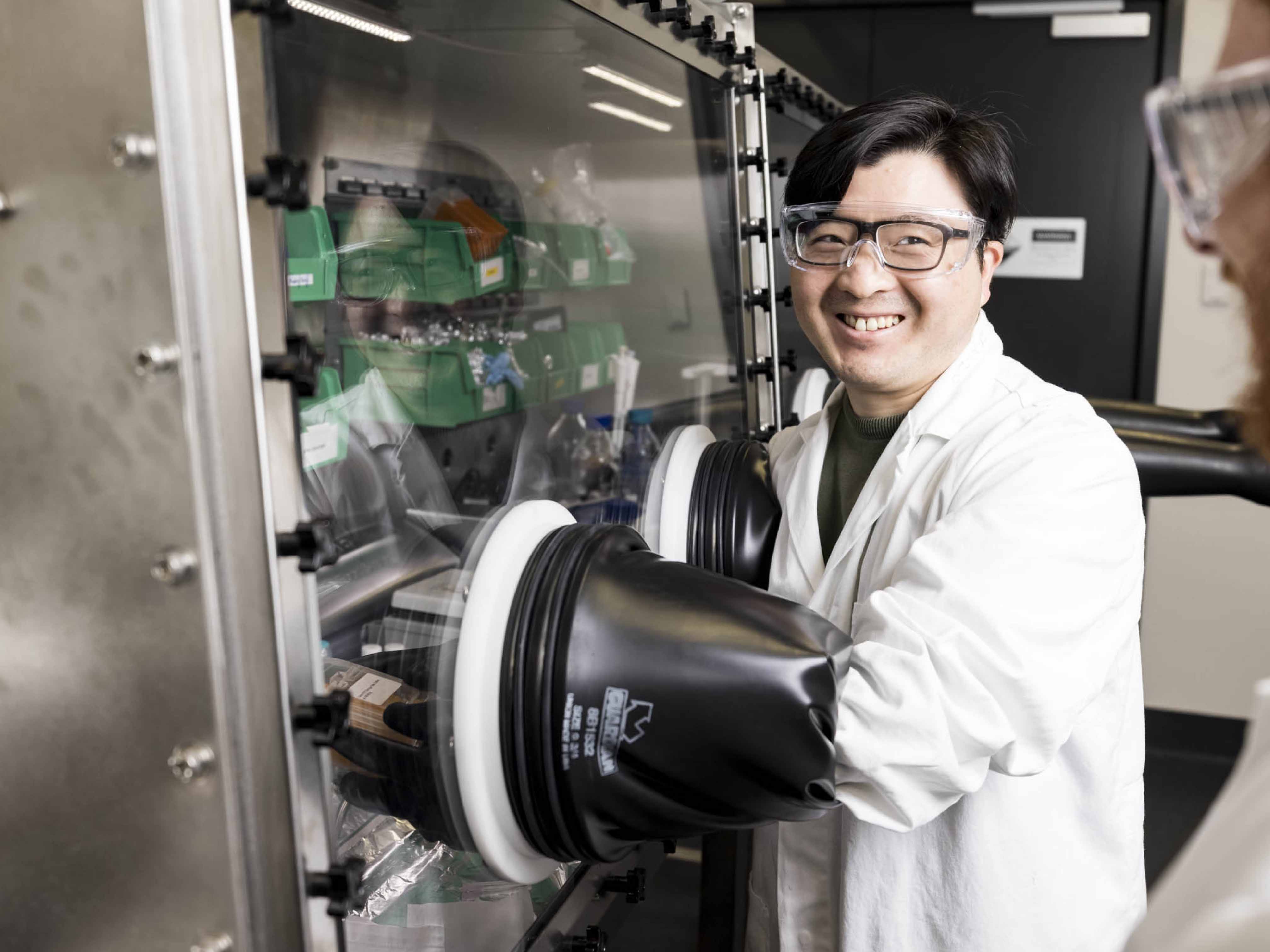Member Profile – Rugang Geng
As a member of Exciton Science, Dr Rugang Geng is among a small group of people around the world pushing new frontiers in experimental, applied physics.
The UNSW Research Fellow explores the spin-dependent properties of optoelectronic devices and is seeking to create new and novel mechanisms for magnetic field sensing.
Rugang’s work could one day enable smartphones to detect magnetic fields using Organic LEDs (OLEDs).
And it’s the thrill of venturing into the scientific and technological unknown that motivates him.
“I think the most exciting part of experimental research is to solve problems that people have never thought of or could not overcome before,” he said.
“As a researcher, you should not only focus on your own research, but should also have a broad and deep view of the field you are working in. Having a general and big picture of the field helps you recognise the significance of your work and learn how your research will contribute to the benefit of the community.
“It's more like you have a puzzle and what you have been actually doing is only one single piece. Then you must put your single piece into this whole puzzle, which is quite challenging. You have to find the right way, because the way you present your work shows how significant it is to the field.

Dr Rugang Geng
Rugang and his colleagues published some of their latest work in Nature Communications, demonstrating a proof-of-concept for OLED magnetic resonance at microchip scale.
The mechanisms underpinning the work are similar to magnetic resonance imaging (MRI). While undeniably complex, for Rugang, it’s an indication of the universality governing his field of expertise.
“The beauty of physics is that it describes the fundamental nature of the world and the universe in a simple way,” he said.
After receiving his Master’s degree in Optical Sciences from Harbin Institute of Technology, Rugang moved to the University of Georgia, where he tackled the dual challenges of completing a PhD in Condensed Matter Physics while also improving his English.
“The biggest challenge for me was the language,” he said.
“In the first year, it was quite difficult. I taught students in the undergraduate physics lab and we had to give a 20-minute introduction at the beginning of the class. I think because of my accent, the students in that class struggled a little.
“During these classes I would communicate with each student face to face while picking up everyday English. That's a unique experience you will never be able to learn from a textbook in China.
“So it improved my overall English proficiency. But I feel a bit sorry for those students because I think they may have suffered more than me,” he added with a wry smile.
The next big adventufor Rugang was moving to UNSW Sydney, where he joined Professor Dane McCamey’s Spin Resonance Research Group in 2018.
Rugang has been part of Exciton Science for five years, and he’s witnessed first-hand the collaborative spirit and amplified impact made possible by Australian Research Councilfunding and support.
“I'm proud of being a member of this Centre because we are working together as a big team and trying to solve critical problems which cannot be solved by an individual research group,” he said.
“We have excellent researchers and professors, they are all very supportive and you can communicate with them easily like they are your friends.”
Rugang is in the unusual position for a physicist of having worked closely on technology with the potential for real-world applications in the near future, leaving him open to many possibilities during the next chapter of his career.
“I'm looking for new positions and I'm open to both academia and industry,” he said.
“I'm still interested in doing research and I would like to develop myself further. It would be great if I could continue my current academic career as a long-term career.
“At the same time, I’m also open to industry, and that is because I feel like in our Centre we are targeting some very challenging problems, which are going to be potentially useful in many applications in the future.”
Whether his career continues in academia or industry, Rugang’s knowledge and experience will make him an asset to any organisation, and a credit to his friends back at Exciton Science.
Alumni profile: Selina Süzeroğlu
Alumni profile: Heyou Zhang